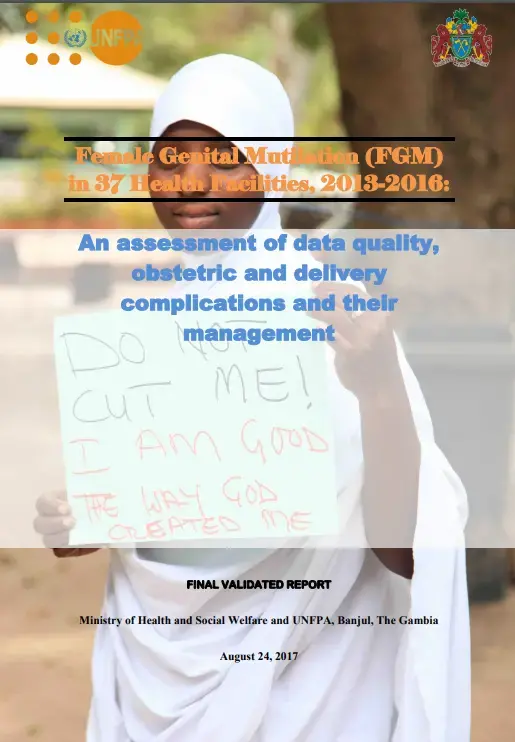The UNFPA and UNICEF-Gambia Country Offices have been supporting a joint programme for the accelerated abandonment of FGM in The Gambia since 2009. With support from UNFPA The Gambia in 2012, the Ministry of Health and Social Welfare, developed and maintained registers in 37 health facilities (35 public and 2 private) for recording data on FGM obstetrics and reproductive health complications and their management.
In late 2016, the UNFPA The Gambia funded a consultancy:
(i) to assess and analyse the data quality from the registers on the FGM obstetrics and reproductive health complications and its management in 37 health facilities covering the period 2013-2016
(ii) to produce a report on the FGM obstetrics and reproductive health complications and their management at health facility levels, documenting challenges of the FGM registers (i.e. data gaps, weaknesses etc.) and to make recommendations on how to improve the data collection system.
Both quantitative and qualitative data were collected for the assessment. For the quantitative data, a specially designed form similar in content and format to the FGM registers, was used to transcribe data from the registers. Key informant interviews (KIIs) of service providers associated with the FGM at the health facilities were conducted to provide the qualitative data.
As a result, clinical data on 7,813 girls and women aged 10-49 years who had undergone FGM and delivered in the 37 health facilities from 2013-2016 were found.


